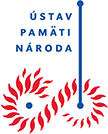KOPČÁNI, Silvia. The persecution of the peasants in the first years of collectivisation (on the example of the prosecution of the peasant Vendelín Braniša)
After the communist takeover in February 1948, society in post-war Czechoslovakia was marked by the violent enforcement of authority by the state. The area that was significantly affected by the cruelty of communist power was agriculture and its forced collectivisation. Adopting the thesis of the class struggle intensification was supposed to immediately lead to the so-called socialisation of the village and the transformation of private farming into collective farming. The regime identified the wealthy peasants, the so-called village rich, as the main enemies of the new order, who were intentionally blamed for the general decline of agriculture. The regime introduced an ingenious system of political and economic interventions that led to their social, economic and existential liquidation. Failure to meet the disproportionately high supplies became the most common and also the most effective cause of punishing the peasants in the harshest ways, such as imprisonment, conscription to auxiliary technical battalions and forced labour camps, or the eviction of entire kulak families. In the 1950s, forced collectivisation affected the largest group of the population in Slovakia.

Updated at: 27.01.2025
Print Tweet